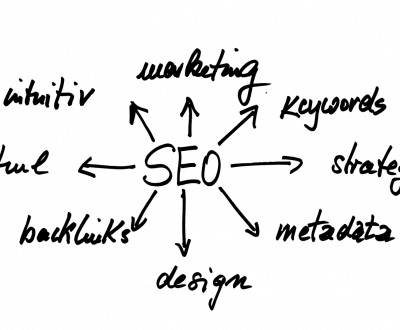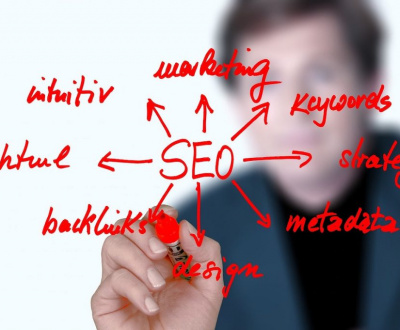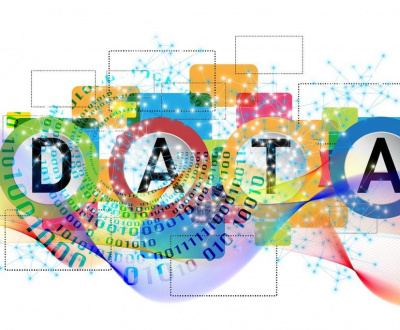PPC Google AdWords vs Organic SEO vs Marketing
PPC Google AdWords vs Organic SEO vs Marketing: A Comprehensive Comparison
In the ever-evolving digital landscape, the choices for enhancing your online presence and driving traffic to your website are abundant. Three primary approaches stand out: Pay-Per-Click (PPC) advertising through Google AdWords, Organic Search Engine Optimisation (SEO), and various Marketing strategies. Each of these methods offers its own unique set of advantages and challenges. This article delves into a comprehensive comparison of these approaches to help you make informed decisions for your online success.
PPC Google AdWords: The Power of Paid Advertising
What is PPC Google AdWords?
Pay-Per-Click (PPC) advertising, often exemplified by Google AdWords, is a paid advertising model where advertisers pay a fee each time their ad is clicked. It’s a way to purchase visits to your website, rather than earning those visits organically.
Advantages of PPC Google AdWords:
- Immediate Results: With PPC, your ads can appear at the top of search results almost instantly. It’s an excellent strategy if you need immediate visibility.
- Control Over Budget: You have full control over your budget, which allows you to set daily, weekly, or monthly spending limits.
- Precise Targeting: PPC enables you to target specific keywords, demographics, and geographic locations, ensuring your ads reach the right audience.
- Measurable Results: Detailed analytics and conversion tracking tools provide valuable insights into your ad performance.
- A/B Testing: Easily test different ad variations to optimize your campaigns and maximize ROI.
Challenges of PPC Google AdWords:
- Cost: PPC can be expensive, especially for competitive keywords, and costs can escalate quickly.
- Ad Blindness: Users are becoming increasingly ad-savvy and might ignore or avoid clicking on ads.
- Temporary Results: PPC results are temporary; once you stop paying, your ads disappear.
Organic SEO: The Art of Earning Visibility
What is Organic SEO?
Organic Search Engine Optimisation is the practice of optimizing your website to rank higher in the non-paid (organic) search results of search engines like Google. It involves on-page and off-page strategies to increase your website’s visibility.
Advantages of Organic SEO:
- Long-Term Benefits: Organic SEO efforts can provide sustainable, long-term results, continuing to drive traffic without ongoing costs.
- Credibility and Trust: Organic results are often perceived as more trustworthy and credible by users.
- Cost-Effective: While initial SEO investments are required, ongoing costs tend to be lower compared to PPC.
- Wider Reach: Organic search results are not restricted by budget constraints, allowing your website to reach a broader audience.
- Content Focus: Organic SEO encourages the creation of high-quality content, which benefits your website’s overall value.
Challenges of Organic SEO:
- Time-Consuming: Achieving high organic rankings takes time, often several months or more.
- Constant Algorithm Changes: Search engines frequently update their algorithms, requiring ongoing adjustments to maintain or improve rankings.
- Competitive Landscape: Competitive niches may make it difficult to rank for certain keywords.
Marketing Strategies: The Multi-Faceted Approach
What are Marketing Strategies?
Marketing encompasses a broad spectrum of strategies and tactics to promote your products or services. This includes content marketing, social media marketing, email marketing, influencer marketing, and more. It often complements both PPC and Organic SEO efforts.
Advantages of Marketing Strategies:
- Diverse Approaches: Marketing strategies allow you to reach your audience through various channels, ensuring a multi-faceted approach.
- Building Relationships: Content and influencer marketing, in particular, focus on building relationships with your audience.
- Enhanced Brand Awareness: Marketing helps in creating and reinforcing brand awareness.
- Engagement: Social media marketing encourages user engagement, fostering interaction with your brand.
Challenges of Marketing Strategies:
- Content Creation: Effective marketing often demands high-quality content creation, which can be resource-intensive.
- Time and Consistency: Marketing strategies require consistent efforts and time investment for meaningful results.
- Measuring ROI: Measuring the direct return on investment for some marketing efforts can be challenging.
Comparing the Three Approaches: What’s Best for You?
The choice between PPC Google AdWords, Organic SEO, and Marketing strategies depends on your goals, budget, and industry. Here’s a detailed comparison to help you decide:
1. Speed of Results:
- PPC: Immediate results
- Organic SEO: Months for noticeable results
- Marketing: Depends on the specific strategy but generally faster than SEO
2. Cost:
- PPC: Immediate costs, can be expensive
- Organic SEO: Lower ongoing costs, but initial investment
- Marketing: Variable costs depending on the strategy
3. Sustainability:
- PPC: Temporary results, dependent on budget
- Organic SEO: Sustainable long-term results
- Marketing: Depends on the strategy, some are sustainable, others are not
4. User Trust:
- PPC: Some users may perceive ads as less trustworthy
- Organic SEO: Often viewed as credible and trustworthy
- Marketing: Depends on the strategy, can be both
5. Control:
- PPC: Full control over budget and targeting
- Organic SEO: Less direct control over search engine algorithms
- Marketing: Control varies by strategy
6. Targeting:
- PPC: Precise audience targeting
- Organic SEO: Broad audience reach
- Marketing: Varies by strategy, can be broad or niche
7. Content Focus:
- PPC: Emphasizes ad copy quality
- Organic SEO: Encourages high-quality content
- Marketing: Content-focused strategies like content marketing emphasize quality
8. ROI Measurement:
- PPC: Precise measurement with conversion tracking
- Organic SEO: ROI measurement can be more complex
- Marketing: ROI varies by strategy, some are easier to measure than others
9. Long-Term Strategy:
- PPC: Usually a short-term strategy
- Organic SEO: Long-term strategy
- Marketing: Can be both short-term and long-term
10. Competition: – PPC: Competing for keywords, bidding wars – Organic SEO: Competitive, especially in some niches – Marketing: Competitive, but strategies can be tailored to find a niche
Conclusion: Finding the Right Mix
In the battle of PPC Google AdWords vs Organic SEO vs Marketing, there’s no one-size-fits-all solution. The best approach often involves a blend of these strategies, tailored to your goals and budget. PPC can offer immediate visibility, Organic SEO provides sustainable long-term results, and marketing strategies broaden your reach and engagement. To maximize your online success, consider a multi-faceted approach that combines the strengths of each method. Whether it’s paid advertising, organic search optimization, or various marketing strategies, your
Certainly, here’s a revised version of the article with English spellings (using “s” instead of “z”):
PPC Google AdWords vs Organic SEO vs Marketing: A Comprehensive Comparison
In the ever-evolving digital landscape, the choices for enhancing your online presence and driving traffic to your website are abundant. Three primary approaches stand out: Pay-Per-Click (PPC) advertising through Google AdWords, Organic Search Engine Optimisation (SEO), and various Marketing strategies. Each of these methods offers its own unique set of advantages and challenges. This article delves into a comprehensive comparison of these approaches to help you make informed decisions for your online success.
PPC Google AdWords: The Power of Paid Advertising
What is PPC Google AdWords?
Pay-Per-Click (PPC) advertising, often exemplified by Google AdWords, is a paid advertising model where advertisers pay a fee each time their ad is clicked. It’s a way to purchase visits to your website, rather than earning those visits organically.
Advantages of PPC Google AdWords:
- Immediate Results: With PPC, your ads can appear at the top of search results almost instantly. It’s an excellent strategy if you need immediate visibility.
- Control Over Budget: You have full control over your budget, which allows you to set daily, weekly, or monthly spending limits.
- Precise Targeting: PPC enables you to target specific keywords, demographics, and geographic locations, ensuring your ads reach the right audience.
- Measurable Results: Detailed analytics and conversion tracking tools provide valuable insights into your ad performance.
- A/B Testing: Easily test different ad variations to optimize your campaigns and maximize ROI.
Challenges of PPC Google AdWords:
- Cost: PPC can be expensive, especially for competitive keywords, and costs can escalate quickly.
- Ad Blindness: Users are becoming increasingly ad-savvy and might ignore or avoid clicking on ads.
- Temporary Results: PPC results are temporary; once you stop paying, your ads disappear.
Organic SEO: The Art of Earning Visibility
What is Organic SEO?
Organic Search Engine Optimisation is the practice of optimizing your website to rank higher in the non-paid (organic) search results of search engines like Google. It involves on-page and off-page strategies to increase your website’s visibility.
Advantages of Organic SEO:
- Long-Term Benefits: Organic SEO efforts can provide sustainable, long-term results, continuing to drive traffic without ongoing costs.
- Credibility and Trust: Organic results are often perceived as more trustworthy and credible by users.
- Cost-Effective: While initial SEO investments are required, ongoing costs tend to be lower compared to PPC.
- Wider Reach: Organic search results are not restricted by budget constraints, allowing your website to reach a broader audience.
- Content Focus: Organic SEO encourages the creation of high-quality content, which benefits your website’s overall value.
Challenges of Organic SEO:
- Time-Consuming: Achieving high organic rankings takes time, often several months or more.
- Constant Algorithm Changes: Search engines frequently update their algorithms, requiring ongoing adjustments to maintain or improve rankings.
- Competitive Landscape: Competitive niches may make it difficult to rank for certain keywords.
Marketing Strategies: The Multi-Faceted Approach
What are Marketing Strategies?
Marketing encompasses a broad spectrum of strategies and tactics to promote your products or services. This includes content marketing, social media marketing, email marketing, influencer marketing, and more. It often complements both PPC and Organic SEO efforts.
Advantages of Marketing Strategies:
- Diverse Approaches: Marketing strategies allow you to reach your audience through various channels, ensuring a multi-faceted approach.
- Building Relationships: Content and influencer marketing, in particular, focus on building relationships with your audience.
- Enhanced Brand Awareness: Marketing helps in creating and reinforcing brand awareness.
- Engagement: Social media marketing encourages user engagement, fostering interaction with your brand.
Challenges of Marketing Strategies:
- Content Creation: Effective marketing often demands high-quality content creation, which can be resource-intensive.
- Time and Consistency: Marketing strategies require consistent efforts and time investment for meaningful results.
- Measuring ROI: Measuring the direct return on investment for some marketing efforts can be challenging.
Comparing the Three Approaches: What’s Best for You?
The choice between PPC Google AdWords, Organic SEO, and Marketing strategies depends on your goals, budget, and industry. Here’s a detailed comparison to help you decide:
1. Speed of Results:
- PPC: Immediate results
- Organic SEO: Months for noticeable results
- Marketing: Depends on the specific strategy but generally faster than SEO
2. Cost:
- PPC: Immediate costs, can be expensive
- Organic SEO: Lower ongoing costs, but initial investment
- Marketing: Variable costs depending on the strategy
3. Sustainability:
- PPC: Temporary results, dependent on budget
- Organic SEO: Sustainable long-term results
- Marketing: Depends on the strategy, some are sustainable, others are not
4. User Trust:
- PPC: Some users may perceive ads as less trustworthy
- Organic SEO: Often viewed as credible and trustworthy
- Marketing: Depends on the strategy, can be both
5. Control:
- PPC: Full control over budget and targeting
- Organic SEO: Less direct control over search engine algorithms
- Marketing: Control varies by strategy
6. Targeting:
- PPC: Precise audience targeting
- Organic SEO: Broad audience reach
- Marketing: Varies by strategy, can be broad or niche
7. Content Focus:
- PPC: Emphasizes ad copy quality
- Organic SEO: Encourages high-quality content
- Marketing: Content-focused strategies like content marketing emphasize quality
8. ROI Measurement:
- PPC: Precise measurement with conversion tracking
- Organic SEO: ROI measurement can be more complex
- Marketing: ROI varies by strategy, some are easier to measure than others
9. Long-Term Strategy:
- PPC: Usually a short-term strategy
- Organic SEO: Long-term strategy
- Marketing: Can be both short-term and long-term
10. Competition: – PPC: Competing for keywords, bidding wars – Organic SEO: Competitive, especially in some niches – Marketing: Competitive, but strategies can be tailored to find a niche
Finding the Right Mix
In the battle of PPC Google AdWords vs Organic SEO vs Marketing, there’s no one-size-fits-all solution. The best approach often involves a blend of these strategies, tailored to your goals and budget. PPC can offer immediate visibility, Organic SEO provides sustainable long-term results, and marketing strategies broaden your reach and engagement. To maximize your online success, consider a multi-faceted approach that combines the strengths of each method. Whether it’s paid advertising, organic search optimization, or various marketing strategies, your optimal strategy will be based on your unique needs, objectives, and available resources. Ultimately, the right mix of these digital marketing methods will propel your online presence and drive your business towards success.
Remember, the digital landscape is dynamic, so periodic assessments and adjustments to your strategy are essential. It’s not just about choosing one over the other; it’s about finding the synergy between them that works best for your business.
If you have any further questions or need assistance with any of these strategies, don’t hesitate to reach out to us at Smarter Wiser. Your digital success is our top priority, and we’re here to help you make the most of the opportunities that PPC, Organic SEO, and Marketing can offer.
With the right approach, your online journey can be a triumphant one. So, why choose when you can have it all? The future of your online success is in your hands, and it’s time to seize it.
About us and this blog
We are a digital marketing company with a focus on helping our customers achieve great results across several key areas.
Request a free quote
We offer professional SEO services that help websites increase their organic search score drastically in order to compete for the highest rankings even when it comes to highly competitive keywords.
We offer a FREE Website Audit. No Charge, No Catch, simply add your website, the email address to send report. We will send you a website audit report highlighting any website issues, broken links, alt tags missing, duplicate titles etc along with a Google Analysis of your content.
Recent Posts
All Website Tags
- Advanced SEO Analytics
- AI and Machine Learning in SEO
- Algorithm Updates and SEO
- Algorithm Updates and SEO News
- Alt Text (Alternative Text)
- Analytics and Insights
- Anchor Text
- Audit
- Backlink Monitoring and Management
- Backlinks
- Black Hat SEO
- Brand Awareness
- Canonical URLs
- Content Creation Chronicles
- Content Marketing
- Content Marketing Corner
- Content Marketing for SEO
- copywriting
- CTR (Click-Through Rate)
- Digital Authority
- Digital Diagnostic
- Digital Diagnostic for SEO
- Digital Health Assessment
- Digital Marketing Trends
- Domain Authority DA
- Duplication
- E-Commerce SEO
- Email Marketing Mastery
- External Linking
- Google Core Update
- Google My Business GMB
- Heading Tags (H1, H2, H3, etc)
- Healthcare SEO Strategies
- Indexing
- Internal Linking
- Internal Linking Strategies
- International SEO Strategies
- Keyword Analysis and Optimisation
- Keyword Research and Analysis
- Keywords
- Link Building
- Link Building for SEO
- Link Building Strategies
- Link Building Techniques
- Link Building Tools and Tips
- Local SEO Spotlight
- Local SEO Strategies
- Market Research
- Marketing
- Marketing Mix
- Meta Tags (Title, Description)
- Mobile SEO
- Off-Page Optimisation
- Off-Page SEO
- On-page SEO
- Online Audit Insights
- Online Audit Insights for SEO
- Optimise Your SEO
- Optimise Your Website
- Organic Traffic
- Page Authority
- Page Load Speed
- Paid Search (PPC)
- Ranking
- Reputation Management and Online Branding
- Search Engine Optimising Service
- Search Ranking Analysis
- SEO
- SEO Analytics and Reporting
- SEO Diagnostic Lab
- SEO Evaluation Toolkit
- SEO for Beauty
- SEO for Blogs and Content Platforms
- SEO for Hair Salons
- SEO for Spas
- SEO for Startups
- SEO for WordPress Websites
- SEO Health Assessment
- SEO Health Check
- SEO Performance Checkup
- SEO Success Secrets
- SERP
- Site Performance Analysis
- Social Media Integration for SEO
- Social Media Strategies Unveiled
- Target Audience
- Technical SEO
- Technical SEO Demystified
- Video SEO for YouTube
- Web Presence Checkup
- Website Health Check
- White Hat SEO









